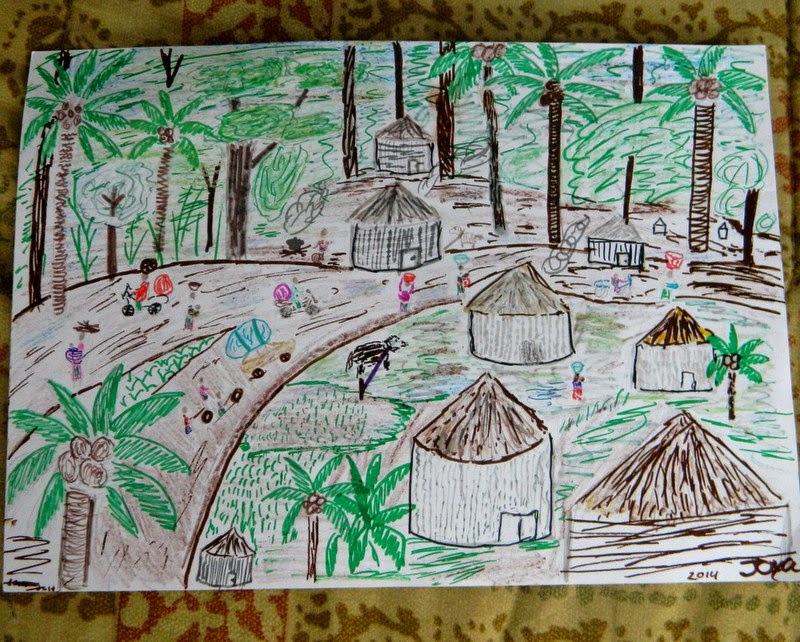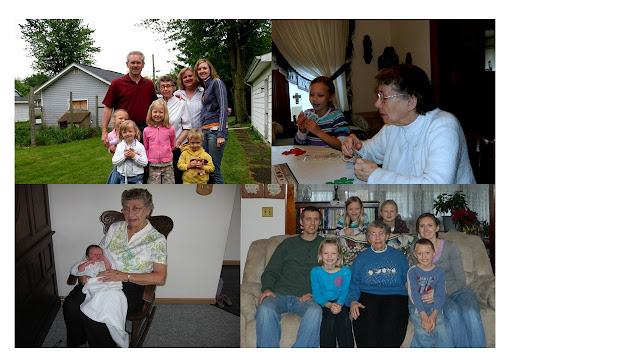A Visit to the Chief
Today I sat in the
house of the chief.
In a small, West
African village that is home to about 1,000 people, the most important and
respected person is the chief. Since we
are guests of the missionary family living in this village, it is customary for
us to recognize his position in the village by going to his house and greeting
him in person.
Not wanting to overwhelm him, we decided that just the four adults
would go to pay this visit to the chief.
As we walked through the village, we very quickly began to have little
followers: small children, mostly
younger than 6 or 7, and their even smaller brothers and sisters came alongside
us as we walked. They were quiet, but
curious, and the farther we walked, the more children we picked up along the
way. By the time we arrived at our
destination, there were probably 15 kids who were bold enough to walk right
with us, and several more shyly standing nearby.
The chief invited us
into his home: a small, rectangular,
concrete building with a tin roof, a wooden door, and a few small windows. No tile, carpet or rugs on the floor; no electricity
and no running water; nothing at all in the room except a few soccer posters on the
wall and a couple of chairs and a bench.
Extra wooden chairs were immediately provided for us; we shook hands all around, sat down, and the
meeting began.
The door remained
open, and the bravest of the brave children crowded into the doorway to watch
this new episode in the ongoing spectacle of a day in the life of a tubabo
(white person). I wasn’t sure how the
chief would handle all the kids peering into the room, and when he began to
speak in their general direction, I was curious to know what he was
saying. Several of them scampered off,
but returned quickly with a long wooden bench.
In an American house, we would have put four or five children on that
bench, but they managed to squeeze on about ten. They didn’t speak at all; they just watched. They were given permission to enter the house, not scolded and sent away. The meeting continued with many formalities exchanged back and forth, and then we
left.
Today I sat in the
house of the chief. A house that would
be, by our western standards, unthinkable to live in. He didn’t apologize for it; he wasn’t ashamed
of it. He graciously invited us in, and
I admire him for that.





Comments